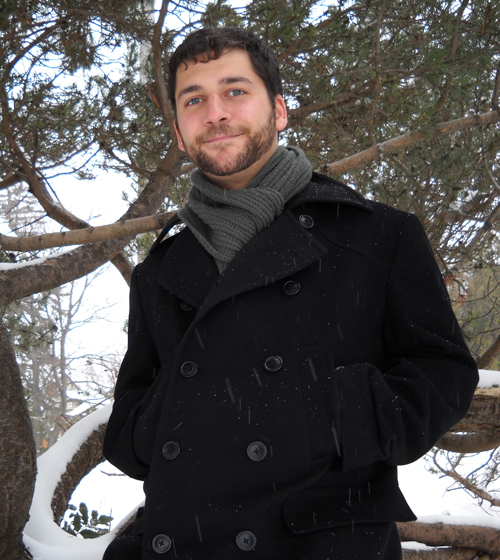
“It’s a big, messy approach to dealing with big, messy problems.” So says population medicine PhD student Sherilee Harper, a charter member of a new campus club that straddles environmental and human health.
Helping to understand and tackle those “big, messy problems” is the purpose of the Ecohealth Club, formed last fall at Guelph. The new group hopes to recruit members from U of G and beyond, and attract participants to panel discussions and other activities in a growing, cross-disciplinary field.
From the effects of climate change on disease spread to antimicrobial resistance, ecohealth topics extend beyond medicine to include social science, environment, urban design and economics.
Working in Northern Canada and Eastern Africa, for instance, Harper studies the effects of climate change on the quality of drinking water and community health. To do that, she needs to consider not just public health but biodiversity, communities, policy and politics.
“We need to understand the whole system,” says Harper, who completed a master’s degree in population medicine before beginning her doctorate as a Vanier scholar a year ago. Referring to ecohealth, she says, “It’s not a discipline, it’s more an approach to research.”
Under a new collaboration with McGill University on indigenous adaptations to climate change, she will continue studies in three communities in the Canadian Arctic. The project is led by Guelph grads Lea Berrang Ford and James Ford, now both geography professors at McGill.
That collaboration will also see Harper travel this year to Uganda with researchers at Makerere University in Kampala to study links between climate change and community health.
Ecohealth provides a different perspective on complex questions involving human health and the natural world, says population medicine professor Karen Morrison, who serves as the club’s faculty adviser. “If you look through an ecohealth lens, you ask different questions. We might rethink a lot of urban design if you look through an integrative lens.”
As a PhD student in the School of Environmental Sciences, Jenni Vanos studies the health effects of urban design. Problems including obesity, depression, substance abuse and crime may relate to the design of our “concrete jungle,” she says. “I know ecohealth studies would help my research.”
Evan Schneider studies environmental change and infectious diseases for a master’s degree in population medicine. He says a good example of an ecosystem approach to health is epidemiological research conducted by population medicine professor David Waltner-Toews in Nepal. There, researchers studying a seemingly simple problem of worm infections needed to consult not just doctors and veterinarians but also sanitation workers, butchers and other community members. Says Schneider: “There are broader social issues that might affect health and sanitation.” Similarly, a pedestrian’s broken leg might point to broader issues involving urban design.
“The whole point of ecohealth is multiple perspectives and broad interdisciplinary approaches to very complex problems,” says Waltner-Toews. Last year, he received the inaugural ecohealth award from the International Association for Ecology and Health; Morrison is a board member of the association.
U of G club member Vi Nguyen is studying ecohealth for a master of population medicine. This semester, she began a one-year internship with the ecohealth program of the International Development Research Centre (IDRC) in Ottawa. She will also conduct field research for a project on emerging infectious diseases in Vietnamese communities.
Other club members include: Ashley Spencer, a third-year DVM student who studied community health and epidemiology for her M.Sc. at the University of Toronto; Zee Leung, now doing his course work for a master of public health; Jacqueline Ferris, studying endocrinology and toxicology for a master of biomedical science; and Cody Anderson, master of public health student looking at ecohealth, zoonotic and vector-borne disease, and emergency management.
Last semester, the club held an inaugural panel discussion on ecohealth and global issues that involved Waltner-Toews; philosophy professor Karen Houle; Victoria Edge, senior epidemiologist at the Public Health Agency of Canada; and Prof. Peter Physick-Sheard, Population Medicine.
Besides planning future events, the club will provide space for students to discuss ecohealth approaches in their research.
The group is sponsored by U of G’s Centre for Public Health and Zoonoses and by CoPEH-Canada. Funded by the IDRC, the Canadian Community of Practice in Ecosystem Approaches to Health has held a series of summer ecohealth courses, including a course in Guelph in 2009.
For more information, contact ehc@uoguelph.ca.